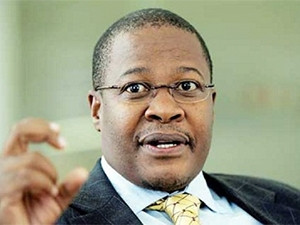
Although the green energy industry has lauded Eskom's investment in renewables research, it believes the power utility can do more.
Regardless of delaying the signing of new deals with the sector, Eskom last week announced it has committed over R6 million to fund research in renewable energy for 2017.
Chose Choeu, Eskom's divisional executive for corporate affairs, stated Eskom has R30.8 million multi-year collaborative projects with CSIR, currently in progress, of which Eskom's contribution is R23.4 million.
Choeu said it also has another R17.5 million in collaborative projects actively under consideration.
State capture
Richard Halsey, a member of environmental body Project 90 by 2030, says the fact that Eskom is giving some support to research into renewables is good.
However, he points out the largest amount given in the media statement is R23.4 million over multi-years.
"This is less than the golden handshake of R30.1 million given to [former Eskom CEO] Brian Molefe for just 1.5 years' service despite the fact that he was implicated in the state capture report. This amount is about 1/25th of the R600 million given to Gupta-owned Tegeta coal overnight that was also in the state capture report, and is about 0.04% of the R58 billion worth of investment that is on hold due to Eskom's ongoing refusal to sign the IPP contracts."
Molefe resigned from Eskom last year after details of his relationship with the controversial Gupta family were revealed in former public protector Thuli Madonsela's State of Capture report.
Public enterprises minister Lynne Brown has since rejected the proposed R30.1 million payout which was set to be given to Molefe.
"So while the amounts [Eskom investment] may be useful for the CSIR and Stellenbosch University, the financial amounts are tiny compared to other Eskom interests in coal and nuclear and the damage being done to the renewable energy industry by not signing the independent power producer programme," Halsey says.
"Then we must look at the rhetoric that has been coming out of Eskom over the past few months. Both the former CEO [Molefe] and current acting CEO [Matshela Koko] wrote articles and were vocal in the media about how renewables were not good for Eskom or the country. So this media announcement about small contributions to research does not constitute a change in attitude, in my opinion."
Monopoly utility
Brenda Martin, chair of the South African Renewable Energy Council, also notes it is great Eskom sees the value of investing in renewable energy research.
However, she says, as a vertically integrated monopoly utility, state-owned enterprise and single buyer of power generated, Eskom has a larger, primary obligation to ensure government electricity policy is realised in practice.
"Over the past two years, Eskom has had the opportunity to demonstrate its commitment to enabling government policy on renewable power. After power had duly been procured through government's Renewable Energy Independent Power Producer Procurement Programme (REI4P), the onus has been on Eskom - as single off-taker - to conclude power purchase agreements since late 2015. Instead, citing corporate concerns, Eskom has sought to evade its obligations to government," says Martin.
According to Martin, with each passing week, SA is losing momentum on the lessons learned through the first successful rounds of renewable power procurement.
"We have seen the tariff decline by over 60% in just four years; the process of bid assessment has been refined so that the process became less onerous for bidders so that power could be added to the grid faster."
She points out that rural communities, particularly in the Northern Cape where approximately 60% of the power plants procured so far will be located, have benefited directly from the REI4P.
"Given the state of our economy, the need for the creation of jobs and attracting investment, it is unclear to me why Eskom has been allowed to delay the additional injection of R58 billion into the economy, and the creation of over 15 000 jobs. Even if it is true that we currently have a power surplus, it will take two to three years for the power currently 'on hold' pending PPA signature, to come online.
"What was SA's power situation two to three years ago? We had rolling blackouts and there was a scramble to grow renewable power additions because they are able to come online quickly and on-budget. Rather than take a short-term view of 'oversupply', South Africa has plenty to gain by simply breaking the impasse with Eskom and getting the REI4P moving again. The economy needs this investment, rural communities need this investment, why is Eskom being allowed to sabotage what is so dearly needed?"